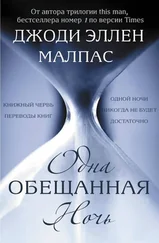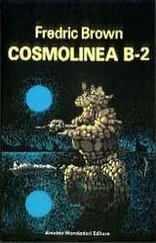Эллен Глазгоу - Barren Ground
Здесь есть возможность читать онлайн «Эллен Глазгоу - Barren Ground» весь текст электронной книги совершенно бесплатно (целиком полную версию без сокращений). В некоторых случаях можно слушать аудио, скачать через торрент в формате fb2 и присутствует краткое содержание. Жанр: Классическая проза, на английском языке. Описание произведения, (предисловие) а так же отзывы посетителей доступны на портале библиотеки ЛибКат.
- Название:Barren Ground
- Автор:
- Жанр:
- Год:неизвестен
- ISBN:нет данных
- Рейтинг книги:3 / 5. Голосов: 1
-
Избранное:Добавить в избранное
- Отзывы:
-
Ваша оценка:
- 60
- 1
- 2
- 3
- 4
- 5
Barren Ground: краткое содержание, описание и аннотация
Предлагаем к чтению аннотацию, описание, краткое содержание или предисловие (зависит от того, что написал сам автор книги «Barren Ground»). Если вы не нашли необходимую информацию о книге — напишите в комментариях, мы постараемся отыскать её.
Barren Ground — читать онлайн бесплатно полную книгу (весь текст) целиком
Ниже представлен текст книги, разбитый по страницам. Система сохранения места последней прочитанной страницы, позволяет с удобством читать онлайн бесплатно книгу «Barren Ground», без необходимости каждый раз заново искать на чём Вы остановились. Поставьте закладку, и сможете в любой момент перейти на страницу, на которой закончили чтение.
Интервал:
Закладка:
Ellen Glasgow
Barren Ground
Preface
If I might select one of my books for the double-edged blessing of immortality, that book would be, I think, Barren Ground. Not only is this the kind of novel I like to read and had always wished to write, but it became for me, while I was working upon it, almost a vehicle of liberation. After years of tragedy and the sense of defeat that tragedy breeds in the mind, I had won my way to the other side of the wilderness, and had discovered, with astonishment, that I was another and a very different person. When I looked back, all my earlier work, except Virginia, the evocation of an ideal, appeared so thin that it seemed two-dimensional. All the forms in which I had thought and by which I had lived, even the substance of things and the very shape of my universe, had shifted and changed. The past was still there, but it was scarcely more solid than the range of clouds on the horizon. And while I realized this, I knew also that different and better work was ahead. Many other writers may have had this experience. I do not know. It is not a conversion of which one speaks often and naturally.
As a young girl, thinking over my first book, I had resolved that I would write of the South not sentimentally, as a conquered province, but dispassionately, as a part of the larger world. I had resolved that I would write not of Southern characteristics, but of human nature. Now, at this turning-point in my life, these early resolutions awoke again with a fresh impulse. It is true that I have portrayed the Southern landscape, with which I am familiar, that I have tried to be accurate in detail, to achieve external verisimilitude; but this outward fidelity, though important, is not essential to my interpretation of life. The significance of my work, the quickening spirit, would not have varied, I believe, had I been born anywhere else. For me, the novel is experience illumined by imagination, and the word "experience" conveys something more than an attitude or a gesture. In Barren Ground, as in The Sheltered Life, I felt that the scene, apart from the human figures, possessed an added dimension, a universal rhythm deeper and more fluid than any material texture. Beneath the lights and shadows there is the brooding spirit of place, but, deeper still, beneath the spirit of place there is the whole movement of life.
For the setting of this book, I went back into the past and gathered vivid recollections of my childhood. The country is as familiar to me as if the landscape unrolled both within and without. I had known every feature for years, and the saturation of my subject with the mood of sustained melancholy was effortless and complete. The houses, the roads, the woods, the endless fields of broomsedge and scrub pine, the low immeasurable horizon, — all these objects I had seen with the remembering eyes of a child. And time, like a mellow haze, had preserved the impressions unaltered. They were the lighter semblances folded over the heart of the book.
But Dorinda, though she had been close to me for ten years before I began her story, is universal. She exists wherever a human being has learned to live without joy, wherever the spirit of fortitude has triumphed over the sense of futility. The book is hers; and all minor themes, episodes, and impressions are blended with the one dominant meaning that character is fate. Blended by life, not imposed by the novel. Though I wrote always toward an end that I saw (I can imagine no other way of writing a book), Dorinda was free, while the theme was still undeveloped, to grow, to change, to work out her own destiny. From many parts of the world she has written to me; from Scotland, from Germany, from Australia, from South Africa, and at least once from China.
ELLEN GLASGOW
Richmond, Virginia, January, 1933.
Part First — Broomsedge
Chapter 1
A girl in an orange-coloured shawl stood at the window of Pedlar's store and looked, through the falling snow, at the deserted road. Though she watched there without moving, her attitude, in its stillness, gave an impression of arrested flight, as if she were running toward life.
Bare, starved, desolate, the country closed in about her. The last train of the day had gone by without stopping, and the station of Pedlar's Mill was as lonely as the abandoned fields by the track. From the bleak horizon, where the flatness created an illusion of immensity, the broomsedge was spreading in a smothered fire over the melancholy brown of the landscape. Under the falling snow, which melted as soon as it touched the earth, the colour was veiled and dim; but when the sky changed the broomsedge changed with it. On clear mornings the waste places were cinnamon-red in the sunshine. Beneath scudding clouds the plumes of the bent grasses faded to ivory. During the long spring rains, a film of yellow-green stole over the burned ground. At autumn sunsets, when the red light searched the country, the broomsedge caught fire from the afterglow and blazed out in a splendour of colour. Then the meeting of earth and sky dissolved in the flaming mist of the horizon.
At these quiet seasons, the dwellers near Pedlar's Mill felt scarcely more than a tremor on the surface of life. But on stormy days, when the wind plunged like a hawk from the swollen clouds, there was a quivering in the broomsedge, as if coveys of frightened partridges were flying from the pursuer. Then the quivering would become a ripple and the ripple would swell presently into rolling waves. The straw would darken as the gust swooped down, and brighten as it sped on to the shelter of scrub pine and sassafras. And while the wind bewitched the solitude, a vague restlessness would stir in the hearts of living things on the farms, of men, women, and animals. "Broomsage ain't jest wild stuff. It's a kind of fate," old Matthew Fairlamb used to say.
Thirty years ago, modern methods of farming, even methods that were modern in the benighted eighteen-nineties, had not penetrated to this thinly settled part of Virginia. The soil, impoverished by the war and the tenant system which followed the war, was still drained of fertility for the sake of the poor crops it could yield. Spring after spring, the cultivated ground appeared to shrink into the "old fields," where scrub pine or oak succeeded broomsedge and sassafras as inevitably as autumn slipped into winter. Now and then a new start would be made. Some thrifty settler, a German Catholic, perhaps, who was trying his fortunes in a staunch Protestant community, would buy a mortgaged farm for a dollar an acre, and begin to experiment with suspicious, strange-smelling fertilizers. For a season or two his patch of ground would respond to the unusual treatment and grow green with promise. Then the forlorn roads, deep in mud, and the surrounding air of failure, which was as inescapable as a drought, combined with the cutworm, the locust, and the tobacco-fly, against the human invader; and where the brief haryest had been, the perpetual broomsedge would wave.
The tenant farmers, who had flocked after the ruin of war as buzzards after a carcass, had immediately picked the featureless landscape as clean as a skeleton. When the swarming was over only three of the larger farms at Pedlar's Mill remained undivided in the hands of their original owners. Though Queen Elizabeth County had never been one of the aristocratic regions of Virginia, it was settled by sturdy English yeomen, with a thin but lively sprinkling of the persecuted Protestants of other nations. Several of these superior pioneers brought blue blood in their veins, as well as the vigorous fear of God in their hearts; but the great number arrived, as they remained, "good people," a comprehensive term, which implies, to Virginians, the exact opposite of the phrase, "a good family." The good families of the state have preserved, among other things, custom, history, tradition, romantic fiction, and the Episcopal Church. The good people, according to the records of clergymen, which are the only surviving records, have preserved nothing except themselves. Ignored alike by history and fiction, they have their inconspicuous place in the social strata midway between the lower gentility and the upper class of "poor white," a position which encourages the useful rather than the ornamental public virtues.
Читать дальшеИнтервал:
Закладка:
Похожие книги на «Barren Ground»
Представляем Вашему вниманию похожие книги на «Barren Ground» списком для выбора. Мы отобрали схожую по названию и смыслу литературу в надежде предоставить читателям больше вариантов отыскать новые, интересные, ещё непрочитанные произведения.
Обсуждение, отзывы о книге «Barren Ground» и просто собственные мнения читателей. Оставьте ваши комментарии, напишите, что Вы думаете о произведении, его смысле или главных героях. Укажите что конкретно понравилось, а что нет, и почему Вы так считаете.










![Эллен Дедженерес - Кроме шуток [Как полюбить себя, продать дуршлаг дорого, прокачать мозг с помощью телешоу и другие истории от Эллен Дедженерес] [litres]](/books/384873/ellen-dedzheneres-krome-shutok-kak-polyubit-sebya-p-thumb.webp)

